Photographs: B Mathur / Reuters Raja Sen in Mumbai
So belatedly are national honours conferred in our country that it is rare to see a Dadasaheb Phalke awardee still in action.
Soumitra Chatterjee -Satyajit Ray's actor-muse, longtime doyen of theatre in West Bengal and this year's honoree - is, however, raring to go. Brought to Mumbai this weekend by the Powai Bengali Association to perform Raja Lear, a Bengali adaptation of King Lear, this was the legendary actor's first Shakespeare role.
The Mumbai performance benefited Mission Swayam Siddha, a charitable organisation working towards women's empowerment.
Raja Sen caught up with one of the country's most revered actors on Friday, a day before he shone on the stage with a highly evocative performance of the Bard's work. Here are some excerpts from a memorable conversation:
King Lear is such a classic role. How does an actor, after such a long and varied career, approach Shakespeare?
Well, a Shakespeare role is always different from others, because of its breadth of vision, depth of insight into human characters and situations. You can always expect that this should be an actor's meat, as they say. So I have always wanted to do a Shakespeare play throughout my life, but never got an opportunity to do that. When I was young, I always wanted to do Hamlet, but didn't get the opportunity.
In fact, this particular play has been in my mind for the last 15 years at least. I was thinking of how to get a good translation, to get a good production company who would back it. Finally it just so happened that Suman Mukherjee, the director, and I were talking. He just said why don't you make King Lear, I know that it's your dream. I said yes, but you have to direct it, I can't take that load anymore, I'm too old for that.
So that's how it all started. And Lear has been compared to some of the best human endeavours, like Beethoven's Ninth Symphony. It's epical and with a huge backdrop of human emotions and the human situation, and so it has always been very inspiring.
'These days not very many good roles are coming my way'
Image: Soumitra Chatterjee in AtmakathaHas it been a challenge to finally take on such a monumental Shakespeare role after doing so much in films and stage over the last several decades?
Any good role is a challenge for an actor. A challenge not from outside but from within; whether I shall be able to do justice to the role. Whether I shall be able to carry the role on my shoulders.
Compared to recent work in cinema, do you find more satisfaction with theatre?
Well, I've been deeply involved in theatre for a very long time. Been writing, adapting, and directing. Homapakkhi was written by a friend of mine, a psychiatrist who practices in London. I give him a nutshell of an idea which he developed and wrote into a full-length play. It was a super successful play, which started in 2006 or 2007. It's still running.
Then came Atmakatha, which is an adaptation of a Marathi play. After that, I did a few other things.
That should indicate how deeply I'm involved in theatre. But I should also mention that I love cinema as well.
They both come with very specific challenges, right?
Yeah. Although for those of us who act, the basics of these two art-forms -- if you allow me to use that rubbish term, 'art-forms' -- are the same, but their presentation is very different. I always compare it with a miniature painting and a huge oil painting. They are two different techniques. And yet, they are the same.
As you said, these days not very many good roles are coming my way... but well, it's quite expected for an actor of my age, you can't expect to get brilliant roles all the while. But if and when it comes it certainly excites me.
I love cinema acting too. But in the theatre the advantage is that I am the theatre-maker there. Most of the time I write my own plays, most of the time I direct. Sometimes I make the music for the production. So that is a very exciting job.
'I never really like watching my old films'
Image: Soumitra Chatterjee in DekhaIn this particular production of King Lear, did the fact that you weren't directing liberate you as an actor, considering a lifelong desire to perform the Bard's work?
No, no, no. Even if I am not directing, my involvement is such that (laughs) well, I could have directed it as well. The trouble is that it would have been a very big load on my energies. And yes, as an actor, carrying a role like Lear is in itself a huge load. On top of that if I was directing also, then maybe I wouldn't have been able to do justice to the role as an actor.
Cinematically, when was the last time you were very thrilled by a role?
I don't know. Not in the near past. (Laughs) The last few films that I did with Tapan Sinha were very exciting, like Wheelchair (1994). And one particular film with Gautam Ghose called Dekha (2001).
Do you look back on your old films, do you like watching them?
No, no. Never, really.
'I don't find much hope for Bengali cinema'
Image: Soumitra Chatterjee and Sharmila Tagore in Apur SansarThat's such a shame considering the amount of joy we've all derived from your oeuvre...
Maybe, accidentally, I come across one of my films. Sometimes maybe they're watching one at a friend's house. I don't look forward to seeing them, because this only sort of gives me a deep sense of dissatisfaction that I could have done better, and I lose my self-confidence. Besides, my job is to look forward, not to go into a flashback...
Not to rest on your laurels.
Yes, not to rest on my laurels. I hate, I hate that.
What do you think of current Bengali cinema? Is it exciting, is there much hope, does it seem to be stagnating?
I don't find much hope. It has just come out of a very, very dark period of imitating South Indian films.
Ah, that's the exact period Hindi cinema is now sadly in the middle of.
Yes, so they have just come out of that period and they are trying to be clever. But it cannot be compared to the times of the 1950s and 1960s when all of those great masters were working at the same time. Satyajit Ray, Mrinal (Sen) and Ritwik (Ghatak).
'Satyajit Ray was in a way part of a movement in world cinema'
Image: Satyajit Ray in Sonar KellaYes, and cinema was much more about being -- to use the term you used -- an 'art-form' as opposed to what it stands for today. As someone who continues to work in cinema today and worked constantly with the great masters then, was their approach very different?
Uh, in a way yes, I must say they were very different.
What differentiated each of them from the other?)
All of them were basically like each other in the sense that each one of them had something to say about life, his experience or his point of view, how he has seen life... but what made Satyajit Ray exceptional was his artistic vision. There he was much superior to anyone.
Also the range, the sheer scope of it all. Personally, in comparing him with his amazing contemporaries, I've always found that his work had this human optimism. It was always essentially cinema of hope.
Absolutely. You know, Satyajit Ray was in a way part of a movement in world cinema. It reached its peak in those two decades, under Satyajit Ray, Truffaut, Godard, Bergman and the biggest of them all, Akira Kurosawa. They were all part of one movement, I should say. And there also, Satyajit is so distinct from the others: the lyrical vision that went into his filmmaking was not always seen with the other great directors.
'Martin Scorsese became a filmmaker because he saw Pather Panchali'
Image: A scene from Pather PanchaliJokhon aapna'r prothom daikha hoye... (When you first met him) That came again from theatre, right? How did that happen?
Oh, that. He was trying to make the second part of the trilogy, Aparajito. And they were looking for someone to play adolescent Apu, and the friend of a friend of mine was his assistant. So through my friend, he came scouting for this potential actor, and he took me to Satyajit Ray.
But I was not selected and was found to be too grown-up for that role. Later on, when he made up his mind to make the third part as well, he contacted me. And after winning the Golden Lion at the Venice Film Festival with Aparajito, he declared that he was going to make the third part of the trilogy.
Much later, at least two-three years later, I came to know that he made up his mind because he had found someone who could play the adult Apu. He decided to make the film because he saw me. That's how this wonderful collaboration started, and went on for 15 films.
Fifteen films. Even if we look at other directors and their actor muses, 15 films is an immense milestone.
It can only be compared with Toshiro Mifune and Kurosawa, or Max Von Sydow with Bergman. Mastroianni with Fellini.
Absolutely, but even then, I don't think any of them did 15 films together. And more than the statistic, in my mind I think the number depicts how this collaboration spanned generations, how it endured. When we see in contemporary cinema that Martin Scorsese works with Robert De Niro for the first half of his career and Leonardo DiCaprio for the second half, for example, we see a generational shift.
Yes, yes. True. And also you must have known that Martin became a filmmaker because he saw Pather Panchali. He even wrote about me, once.
'It's very difficult to be objective when it comes to my films with Satyajit Ray'
Image: A scene from CharulataYes, and he's been instrumental in the restoration process of a lot of classic Bengali cinema, like Jalsaghar only last year. Tell me, when looking back at all these 15 films, what are the most..
Well, it is very difficult for me to judge.
Oh, I don't expect you to be objective at all.
Yes, it's very difficult to be objective, and besides, today I may be thinking about one particular film and think X is the best, and tomorrow Y feels like the best. So..
No, even if not grading or ranking the films, which ones stick out?
What I feel is I was working in one film throughout these many years. It was never an end in itself for one film. It was a continuity. It's a process; it's a way of life that I have lived with my director.
Which film do you most get asked about? Charulata?
Maybe, Charulata. And also Apu.
'When I played Apu, I did not play myself, I played a generation'
Image: Soumitra Chatterjee and Sharmila Tagore in Apu SansarThe Apu Trilogy is such a hallowed chapter in cinematic history. When you worked as Apu, were you aware at the time of the importance of the character and of the filmmaker?
A whole generation grew up.. More than one generation, actually, grew up reading Pather Panchali, the novel. I was also one of them. And like most of our generation who have, at some point or other, identified with Apu, his dreams, his romanticism...
Romantic in the sense of wonder he finds in the life and world around him. So I was one of them. And I was somewhat like Apu as one who does not belong to the metropolis in the beginning, coming from a distant semi-village background, with a rural tinge in his character. And then this big city sort of engulfs him and opens so many windows of the bigger world, and that kind of an evolution was part of many, many of our generation.
Particularly more so in our generation because of the Partition; many had to come away and live in the city, and I was one of them. So when I played Apu, I did not play myself, I played a generation.
Yes, such a seminal character for that era. But what about Mr Ray? At the time was he already regarded as a master filmmaker?
Oh yes. He was already a world-famous man.
So much of our current cinema even now is so bogged down by censorship, it creatively curtails itself before even the censors come in. It's astonishing to look back at Hirak Raja'r Deshe in that context. To make that film when it was made (a classic film openly lampooning the Emergency, made in 1980) and the strength of the political allegory...
Ah but you know, there, Mr Ray enjoyed a kind of position which no one today enjoys. No one would have dared to touch that film because it was made by Satyajit Ray. But it is one of the strongest political statements that you can find in film. If anyone else would have done that, any of today's directors, forget it.
Besides, you know, you need a kind of conviction to make a film like that.
'I wanted to do Goopy but he (Satyajit Ray) said the role won't suit me'
Image: A scene from Goopy Gyne Baaga ByneWas it something -- at the time of its creation -- something you as actors and collaborators were tentative about? Did you think the content needed to be toned down in any way?
No, no, no. Because we knew that the maker of it, the writer of it, the director of it, he himself was there. And in charge.
With a personality that strong, as an actor, would he encourage inputs? Was he collaborative?
Hmm, yes. (Long pause) If anyone would suggest something which would help his film, he was very open. Because he didn't have such ego. He was so complete, his ego was so resolved (laughs), it didn't matter.
Emnite beshi loke'ra bolte peto na (there was hardly an opportunity to correct him); you can see with your own eyes how perfect he is. But sometimes as an actor you want to do certain things to your character. For instance in Abhijaat, that bhanga-bhanga Bangla aami contribute korrechhilam (I contributed the broken Bengali my character spoke). When I asked him he said 'show me what you want to do, let me see the rehearsal.' And just before the take, I asked him 'shall I do it, Manikda?', and he said 'okay, go ahead. I have no objection. But I don't know how it'll sound in the love scene.' (Laughs) Very humorous man.
Any other director would have certainly said 'no no Soumitra, don't do that.' But this is also about the faith he had in me as an actor he knew what to expect from me.
Considering such a long partnership, were there films he'd done with other actors where you'd felt you could have done better?
Oh yes! Several times. Like I wanted to do Goopy. He used to read out all his scripts to me, whether I was there or not. So when he read Goopy Gyne, I jumped at it. I said 'I must do this part.' He said 'no no no no, the role won't suit you. You don't look like a chashi, mone hoye na.' (You don't look like a peasant.) I insisted.
He kept refusing and then finally he just said one thing, 'aamar mone'r chhobi'r shonge milche na.' ('It doesn't meet what I've pictured in my head.') And then what could I say? And the strangest part is he found someone who was probably born to do that role. Tapen Chatterjee is SO good in that, absolute perfection incarnate. You can't imagine anyone else.
'Shakespeare translation is always a problem'
Image: Soumitra Chatterjee as FeludaLooking at current cinema, when you see the new generations of Feluda for example...
I have seen one or two. I don't get the opportunity, and neither the inclination to go and watch Bengali cinema today. Besides, my energy is also limited today. Anyway I saw a few Feludas, two-three of them, but I did not like the other two.. Whatever little liking I could feel was for Sabyasachi, he is slightly better. At least he has a presence, a good diction. But the Topshe and Jatayu I cannot stomach.
I don't think any of us can. But do you make time for other cinema? Perhaps not in the theatre but at home?
I watched Autograph and recently Bhooter Bhobishyot. The first 10 minutes or so of that film is very boring because that part of the story can be told in three sentences. But after Sabyasachi starts telling the story, it becomes very interesting because of the concept. But one thing I don't like. In that film and it is contagious I find, in few films I'm working in, boddo beshi kharaap kotha. (A lot of vulgar language.)
True, and even when it is not required.
It's not required at all! Maybe there can be one character who uses such language once in a while. But such slang jokes are not necessary to take the story forward.
Coming back to language, and Lear. Was translation a big problem?
Oh, Shakespeare translation is always a problem. But this is a workable translation, and it is done by one of the best translators of Shakespeare in Bengal, Sunil Chattopadhyay. He was pretty good, and this particular one, Lear, his last one, I found is very workable, but when we put it into the rehearsal, we had to brush it up once again. And I helped in that process again. There is another playwright who also helped, who was at that time attached to the Minerva Repertory, Debashish. And the director, Suman. The three of us worked on the text.
'We had a very unpleasant task of bringing the play down to a three hour duration'
Image: Soumitra ChatterjeePhotographs: Dipak Chakraborty
And it is a traditional retelling of the play?
Oh yes, it hasn't been made modern or changed around. It's absolutely traditional framework. We had a very very unpleasant task of bringing it down to a three hour duration. It's a huge play. The full-length playing time, I think in Europe, was staged at five hours.
I read an interview recently where Dame Judi Dench, speaking of Shakespeare, said that as a writer he makes it very easy for the actor because he even writes the pauses into the words. All an actor needs to do is follow the text. In that context is a translation less helpful, so to speak?
In a language like ours, not a European language, where there is aapni/tumi/tui but you are translating from a language where there is only one, thou or you. And they are very crucial distinctions, distinctions we have to infer.
They affect not just the meter of the line but the intention of the line. It's a very difficult job, but up till now -- maybe some translator in the future will do even better -- we had no other option but to depend on this translation, which really is pretty good.

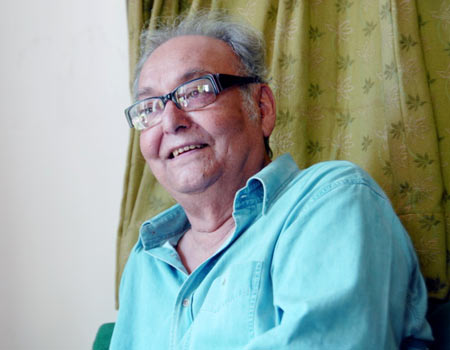
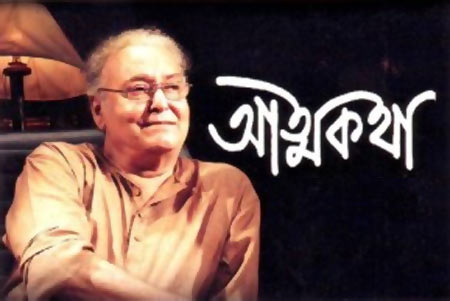
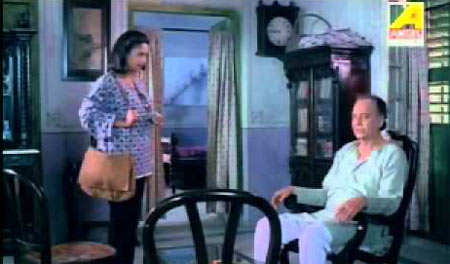
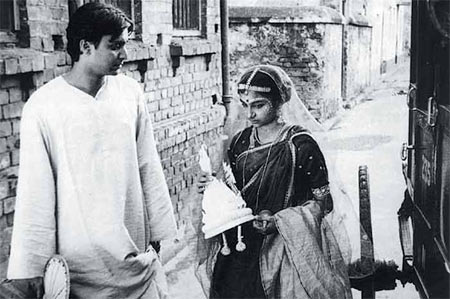
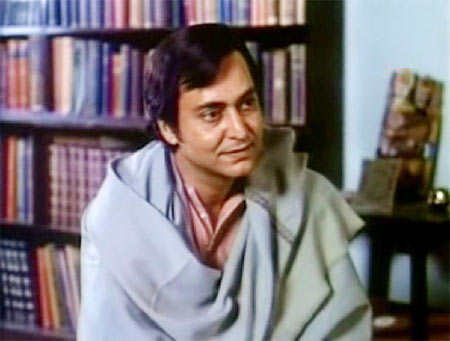
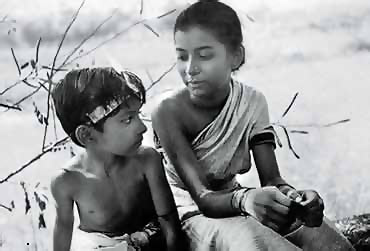
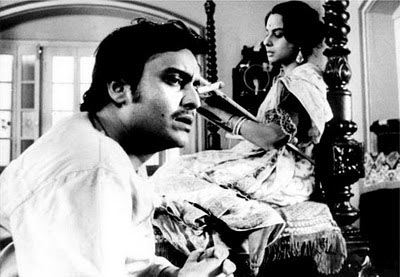
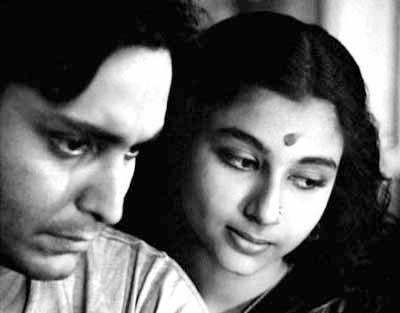
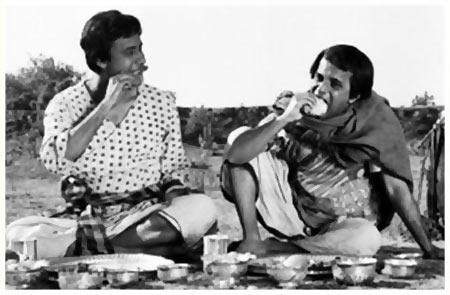
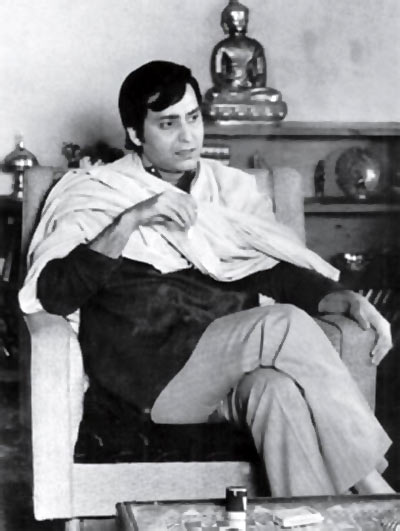
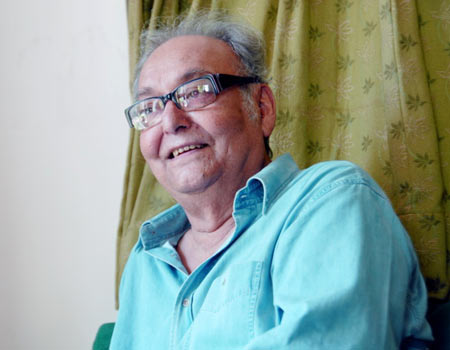
Comment
article